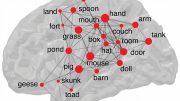
A study reveals that language related to “improvement” is more closely aligned with addition rather than subtraction, potentially leading to overcomplicated solutions. This addition bias is deeply embedded in the English language and can negatively impact decision-making, as people may favor adding more layers or elements instead of simplifying.
A new study reveals that a linguistic bias in the English language, which encourages us to “improve” things by adding to them rather than subtracting, is so widespread that it has even been ingrained in AI chatbots.
Language that deals with the idea of “improvement” is often associated more with enhancement, rather than reduction. This can prompt us to take actions that unnecessarily complicate the things we aim to enhance.
An international research team from the Universities of Birmingham, Glasgow, Potsdam, and Northumbria University has published a study in the journal Cognitive Science detailing their findings.
Dr. Bodo Winter, Associate Professor in Cognitive Linguistics at the University of Birmingham said: “Our study builds on existing research which has shown that when people seek to make improvements, they generally add things.
“We found that the same bias is deeply embedded in the English language. For example, the word ‘improve’ is closer in meaning to words like ‘add’ and ‘increase’ than to ‘subtract’ and ‘decrease’, so when somebody at a meeting says, ‘Does anybody have ideas for how we could improve this?,’ it will already, implicitly, contain a call for improving by adding rather than improving by subtracting.”
The research also finds that other verbs of change like ‘to change’, ‘to modify’, ‘to revise’ or ‘to enhance’ behave in a similar way, and if this linguistic addition bias is left unchecked, it can make things worse, rather than improve them. For example, improving by adding rather than subtracting can make bureaucracy become excessive.
This bias works in reverse as well. Addition-related words are more frequent and more positive in ‘improvement’ contexts rather than subtraction-related words, meaning this addition bias is found at multiple levels of English language structure and use.
The bias is so ingrained that even AI chatbots have it built in. The researchers asked GPT-3, the predecessor of ChatGPT, what it thought of the word ‘add’. It replied: “The word ‘add’ is a positive word. Adding something to something else usually makes it better. For example, if you add sugar to your coffee, it will probably taste better. If you add a new friend to your life, you will probably be happier.”
Dr. Winter concludes: “The positive addition bias in the English language is something we should all be aware of. It can influence our decisions and mean we are pre-disposed to add more layers, more levels, more things when in fact we might actually benefit from removing or simplifying.
“Maybe next time we are asked at work, or in life, to come up with suggestions on how to make improvements, we should take a second to consider our choices for a bit longer.”
Reference: “More is better: language statistics are biased towards addition” by B. Winter, M. H. Fischer, C. Scheepers and A. Myachykov, 3 April 2023, Cognitive Science.
DOI: 10.1111/cogs.13254









The woke will find enemies in every nook, cranny and corner…
Semantics. Potato- potahto. Improve does not implicitly mean add, certainly not to all people. Synonyms of the word include ‘refine’ – which is not to increase or add on anything, but to modify the quality, rather than quantity. Run the word through a corpus linguistics and we get the word in context: demonstrating both quality and quantity in the word’s use. This argument is based on implication or inference, and that is ambiguous by definition.
Wrong. In the business world IMPROVE can mean reduction.
Carried too far would mean going out of business. A better approach would be to ‘optimize.’
What the study shows is a correlation between a bias it finds possible to evidence in behavioral studies involving English speakers, and OTOH a bias evidenced purely from linguistic considerations it applies to English, but the study provides no substantial evidence for the highlighted causal link from the latter to the former; which appears rather to be assumed by fiat. Other possibilities are imaginable though.
What the study shows is a correlation between a bias it finds possible to evidence in behavioral studies involving English speakers, and OTOH a bias evidenced purely from linguistic considerations it applies to English, but the study provides no substantial evidence for the highlighted causal link from the latter to the former; which appears rather to be assumed by fiat. Other possibilities are imaginable though.
this is ridiculous, and at best I’d say that the study itself was biased to look for this bias.
For example, in design, removing unnecessary elements from a composition can make it more visually appealing and effective. In writing, removing unnecessary words or sentences can make the writing more concise and easier to understand.
In personal life, decluttering and simplifying can lead to a more organized and peaceful living space. In relationships, removing toxic or negative influences can lead to healthier and happier connections with others.
In automotive racing, removing weight from a vehicle can often improve its performance. This is because lighter vehicles can accelerate and maneuver more quickly than heavier ones. By removing excess weight through various means, such as using lighter materials or removing non-essential components, a race car can become faster and more agile.